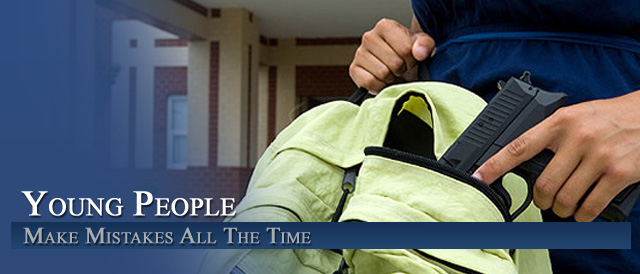
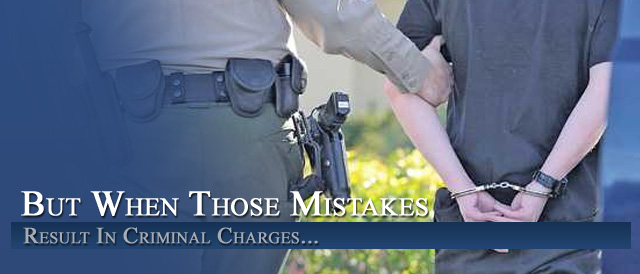
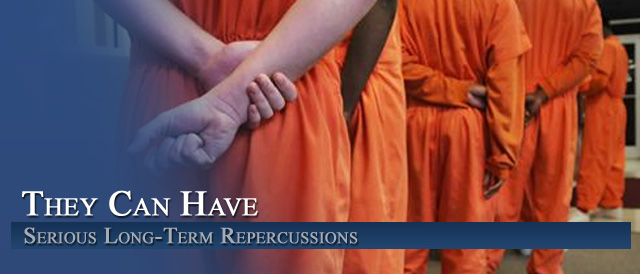

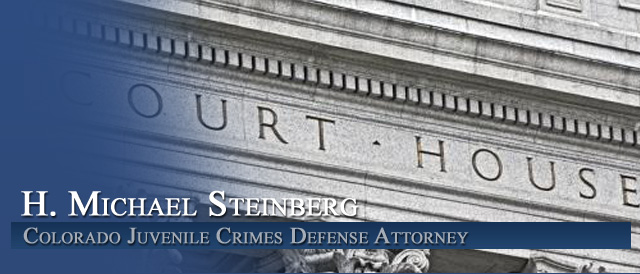
Colorado Juvenile Law – The Right To A Speedier Speedy Trial 19-2-108 CRS
By H. Michael Steinberg Colorado Juvenile Criminal Defense Lawyer – Attorney
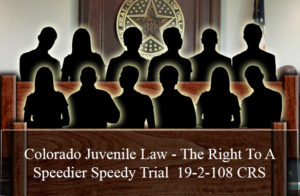 Colorado Juvenile Law – The Right To A Speedier Speedy Trial 19-2-108 CRS – Understanding the speedy trial deadlines in Colorado Juvenile cases can be complex. This brief article explains the laws governing those important court deadlines as they apply to the various aspects of a Colorado Juvenile case which includes trials, the first appearance, detention hearings, the filing of the petition in delinquency, and the rules governing continuances.
Colorado Juvenile Law – The Right To A Speedier Speedy Trial 19-2-108 CRS – Understanding the speedy trial deadlines in Colorado Juvenile cases can be complex. This brief article explains the laws governing those important court deadlines as they apply to the various aspects of a Colorado Juvenile case which includes trials, the first appearance, detention hearings, the filing of the petition in delinquency, and the rules governing continuances.
Another article addresses the right to a jury trial in Colorado Juvenile Criminal Cases
To understand ANY criminal law in Colorado – start with reading the law. Here is the 2017 version of Colorado’s Juvenile Speedy Trial Law – Speedy Procedures Law.
Colorado Revised Statutes Title 19.Children’s Code
§ 19-2-108. Speedy Trial–Procedural Schedule
(1) The juvenile’s right to a speedy trial shall be governed by section 18-1-405, C.R.S., and rule 48(b) of the Colorado rules of criminal procedure.
(2) In bringing an adjudicatory action against a juvenile pursuant to this article, the district attorney and the court shall comply with the deadlines for:
(a) Holding the detention hearing, as specified in section 19-2-508(3)(a)(I) CRS;
19-2-508(3)(a)(I) CRS
A juvenile taken into custody pursuant to this article and placed in a detention or shelter facility or a temporary holding facility is entitled to a hearing within forty-eight hours, excluding Saturdays, Sundays, and legal holidays, of such placement to determine if he or she should be detained. The time of the detention hearing must allow defense counsel sufficient time to consult with the juvenile before the detention hearing. This consultation may be performed by secure electronic means if the conditions under which the electronic consultation is held allow the consultation to be confidential. The time in which the hearing must be held may be extended for a reasonable time by order of the court upon good cause shown.
(b) Filing the petition, as specified in section 19-2-508(3)(a)(V) CRS;
19-2-508(3)(a)(V) CRS
When the court orders further detention of the juvenile or placement of the juvenile in a preadjudication service program after a detention hearing, the district attorney shall file a petition alleging the juvenile to be a delinquent within seventy-two hours after the detention hearing, excluding Saturdays, Sundays, and legal holidays. The juvenile shall be held or shall participate in a preadjudication service program pending a hearing on the petition. Upon a showing of good cause, the court may extend such time for the filing of charges.
(c) Setting the first appearance, as specified in section 19-2-514(4) CRS;
19-2-514(4) CRS
The summons shall require the person or persons having the physical custody of the juvenile, if other than a parent or guardian, to appear and to bring the juvenile before the court at a time and place stated not more than thirty days after issuance of the summons.
and
(d) Holding the adjudicatory trial, as specified in section 19-2-708(1).
19-2-708(1) CRS
(1) Upon the entry of a plea of not guilty to the allegations contained in the petition, the court shall set the matter for an adjudicatory trial. Except as otherwise provided in section 19-2-107, the court shall hold the adjudicatory trial within sixty days following the entry of a plea of not guilty.
[HMS – The escape hatch – a finding of good cause can be a way around the deadlines set above.]
(3) The court may grant a continuance with regard to any of the deadlines specified in subsection (2) of this section upon making a finding of good cause.
Understanding Good Cause To Continue – The Exceptions To Statutory Deadlines
1. The continuance is granted because of the unavailability of evidence material to the state’s case, when the prosecuting attorney has exercised due diligence to obtain such evidence and there are reasonable grounds to believe that this evidence will be available at the later date; or
2. The continuance is granted to allow the prosecuting attorney additional time in felony cases to prepare the state’s case and additional time is justified because of exceptional circumstances of the case and the court enters specific findings with respect to the justification.
When A Juvenile IS Held Without Bail – Or When Incarcerated And Bail Or Bail Bond Is Revoked Or Increased
IF a Colorado juvenile is held without bail or whose bail or bail bond is revoked or increased any time AFTER the initial detention hearing and is unable to post bond and remains in custody or detention,…THEN that juvenile has a right to be tried on the charges on which the bail is denied or the bail or bail bond is revoked or increased within sixty (60) days after the entry of such order
or
within sixty (60) days after the juvenile’s entry of a plea, whichever date is earlier. (C.R.S. 19-2-509)
The exception to this is if the juvenile requests a jury trial pursuant to section 19-2-107, then C.R.S. 18-1-405 governs and it is six (6) months for speedy trial.
Summary And Conclusion – Colorado Juvenile Law – The Right To A Speedier Speedy Trial 19-2-108 CRS
Colorado Juvenile Non-Jury Trials – A juvenile’s trial for a non jury trial case must be held within sixty days of an entry of a plea of not guilty pursuant to C.R.S. 19-2-708.
When A Juvenile Is Entitled To A Full Jury Trial – The Adult Court Speedy Trial Law (below) – 18-1-405 Applies:
§ 18-1-405 Speedy Trial
(1) Except as otherwise provided in this section, if a defendant is not brought to trial on the issues raised by the complaint, information, or indictment within six months from the date of the entry of a plea of not guilty, he shall be discharged from custody if he has not been admitted to bail, and, whether in custody or on bail, the pending charges shall be dismissed, and the defendant shall not again be indicted, informed against, or committed for the same offense, or for another offense based upon the same act or series of acts arising out of the same criminal episode.
(2) If trial results in conviction which is reversed on appeal, any new trial must be commenced within six months after the date of the receipt by the trial court of the mandate from the appellate court.
(3) If a trial date has been fixed by the court, and thereafter the defendant requests and is granted a continuance for trial, the period within which the trial shall be had is extended for an additional six-month period from the date upon which the continuance was granted.
(3.5) If a trial date has been fixed by the court and the defendant fails to make an appearance in person on the trial date, the period within which the trial shall be had is extended for an additional six-month period from the date of the defendant’s next appearance.
(4) If a trial date has been fixed by the court, and thereafter the prosecuting attorney requests and is granted a continuance, the time is not thereby extended within which the trial shall be had, as is provided in subsection (1) of this section, unless the defendant in person or by his counsel in open court of record expressly agrees to the continuance or unless the defendant without making an appearance before the court in person or by his counsel files a dated written waiver of his rights to a speedy trial pursuant to this section and files an agreement to the continuance signed by the defendant. The time for trial, in the event of such agreement, is then extended by the number of days intervening between the granting of such continuance and the date to which trial is continued.
(5) To be entitled to a dismissal under subsection (1) of this section, the defendant must move for dismissal prior to the commencement of his trial and prior to any pretrial motions which are set for hearing immediately before the trial or prior to the entry of a plea of guilty to the charge or an included offense. Failure to so move is a waiver of the defendant’s rights under this section.
(5.1) If a trial date is offered by the court to a defendant who is represented by counsel and neither the defendant nor his counsel expressly objects to the offered date as being beyond the time within which such trial shall be had pursuant to this section, then the period within which the trial shall be had is extended until such trial date and may be extended further pursuant to any other applicable provisions of this section.
(6) In computing the time within which a defendant shall be brought to trial as provided in subsection (1) of this section, the following periods of time shall be excluded:
(a) Any period during which the defendant is incompetent to stand trial, or is unable to appear by reason of illness or physical disability, or is under observation or examination at any time after the issue of the defendant’s mental condition, insanity, incompetency, or impaired mental condition is raised;
(b) The period of delay caused by an interlocutory appeal whether commenced by the defendant or by the prosecution;
(c) A reasonable period of delay when the defendant is joined for trial with a codefendant as to whom the time for trial has not run and there is good cause for not granting a severance;
(d) The period of delay resulting from the voluntary absence or unavailability of the defendant; however, a defendant shall be considered unavailable whenever his whereabouts are known but his presence for trial cannot be obtained, or he resists being returned to the state for trial;
(e) The period of delay caused by any mistrial, not to exceed three months for each mistrial;
(f) The period of any delay caused at the instance of the defendant;
(g) The period of delay not exceeding six months resulting from a continuance granted at the request of the prosecuting attorney, without the consent of the defendant, if:
(I) The continuance is granted because of the unavailability of evidence material to the state’s case, when the prosecuting attorney has exercised due diligence to obtain such evidence and there are reasonable grounds to believe that this evidence will be available at the later date; or
(II) The continuance is granted to allow the prosecuting attorney additional time in felony cases to prepare the state’s case and additional time is justified because of exceptional circumstances of the case and the court enters specific findings with respect to the justification;
(h) The period of delay between the new date set for trial following the expiration of the time periods excluded by paragraphs (a), (b), (c), (d), and (f) of this subsection (6), not to exceed three months;
(i) The period of delay between the filing of a motion pursuant to section 18-1-202(11) and any decision by the court regarding such motion, and if such decision by the court transfers the case to another county, the period of delay until the first appearance of all the parties in a court of appropriate jurisdiction in the county to which the case has been transferred, and in such event the provisions of subsection (7) of this section shall apply.
(7) If a trial date has been fixed by the court and the case is subsequently transferred to a court in another county, the period within which trial must be had is extended for an additional three months from the date of the first appearance of all of the parties in a court of appropriate jurisdiction in the county to which the case has been transferred.
Colorado Juvenile Law – The Right To A Speedier Speedy Trial 19-2-108 CRS
If you found any of the information I have provided on this web page article helpful please click my Plus+1 or the Share buttons for Twitter and Facebook below so that others may also find it.
The reader is admonished that Colorado criminal law, like criminal law in every state and at the Federal level, changes constantly. The article appearing above was accurate at the time it was drafted but it cannot account for changes occurring after it was uploaded.
If, after reading this article, you have questions about your case and would like to consider retaining our law firm, we invite you to contact us at the Steinberg Colorado Criminal Defense Law Firm – 303-627-7777.
Never stop fighting – never stop believing in yourself and your right to due process of law. You will not be alone in court, H. Michael will be at your side every step of the way – advocating for justice and the best possible result in your case. H. Michael Steinberg is passionate about criminal defense. His extensive knowledge and experience of Colorado Criminal Law gives him the edge you need to properly handle your case
 ABOUT THE AUTHOR: H. Michael Steinberg – Email The Author at:
ABOUT THE AUTHOR: H. Michael Steinberg – Email The Author at:
A Denver Colorado Criminal Defense Lawyer – or call his office at 303-627-7777 during business hours – or call his cell if you cannot wait and need his immediate assistance – please call 720-220-2277.
“A good criminal defense lawyer is someone who devotes themselves to their client’s case from beginning to end, always realizing that this case is the most important thing in that client’s life.”
You should be careful to make a responsible choice in selecting a Colorado Criminal Defense Lawyer. We encourage you to “vet” our firm. Over the last 30 plus years – by focusing ONLY on Colorado criminal law – H. Michael has had the necessary time to commit to the task of constantly updating himself on nearly every area of criminal law, to include Colorado criminal law and procedure and trial and courtroom practice. H. Michael works hard to get his clients the best possible results in and out of the courtroom. He has written, and continues to write, extensively on Colorado criminal law and he hopes this article helps you in some small way – Colorado Juvenile Law – The Right To A Speedier Speedy Trial 19-2-108 CRS.
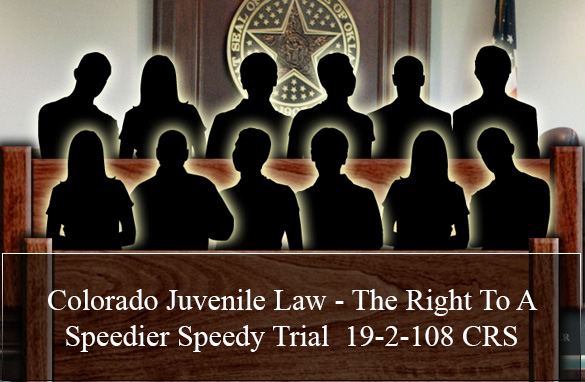
Other Articles of Interest:
- Juvenile Speedy trial – Procedural Schedule 19-2-108
- Colorado Juvenile Diversion Programs 19-1- 103(44) – An Important Warning – Speedy Trial – Statute of Limitations 6-5-401(1)(a)
- Colorado Juvenile Criminal Trials – A Look At How They Work
- Informal Adjustment 19-2-703
- Colorado Juvenile Law – When IS There A Right To A Jury Trial? – C.R.S. 19- 2-107












